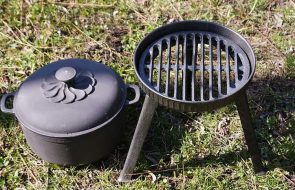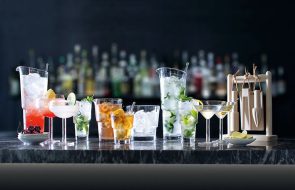This representative of the East has not “settled” in every kitchen. However, without its participation, you are unlikely to get a fragrant pilaf cooked according to all the rules. And experienced housewives claim that in a cauldron you can cook not only Uzbek pilaf, but a wide range of dishes with amazing taste qualities (lagman, shurpa). Therefore, it makes sense to choose a suitable model for your kitchen.
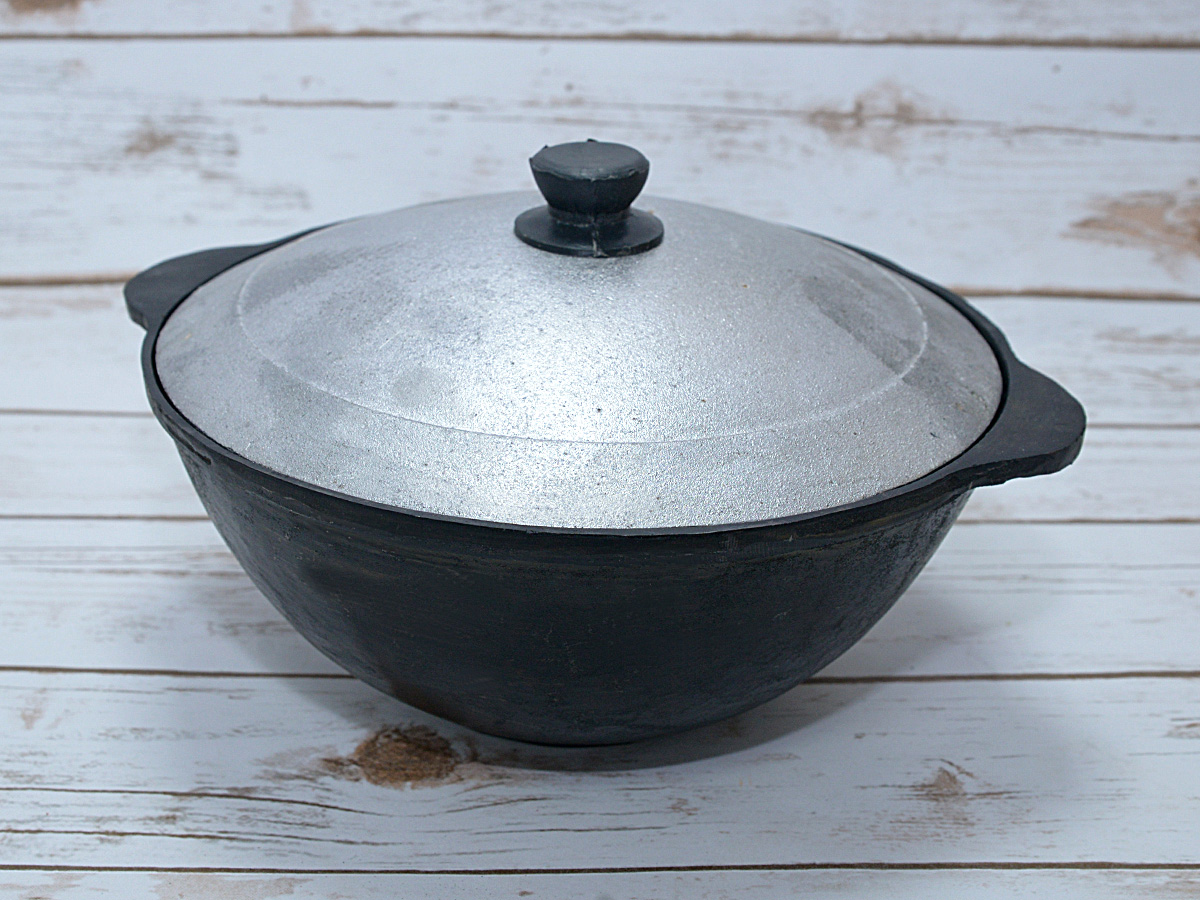
Content
Operating principle and device
A kazan is a cauldron with a rounded bottom. It is impossible to imagine the cuisine of Central Asia without it. As a rule, this device is placed on a special tripod or in a stove (stationary or portable - it does not matter).
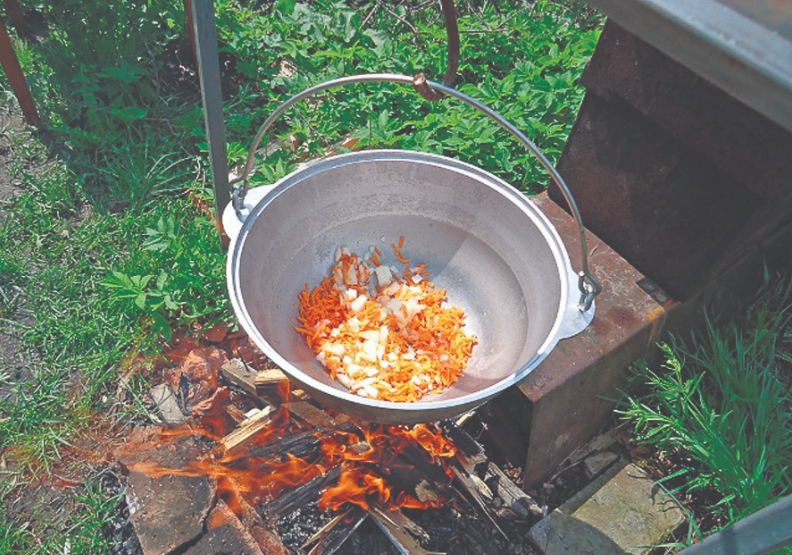
A lid is a must for any cauldron. It should fit tightly and not allow steam to escape. The lid is made either from the same material as the cauldron itself or from wood. Yes, yes, it is wooden lids that Central Asian cooks prefer. The thing is that wood has low thermal conductivity, and it is also hygroscopic. These properties allow you to cook crumbly, aromatic and incredibly tasty pilaf.
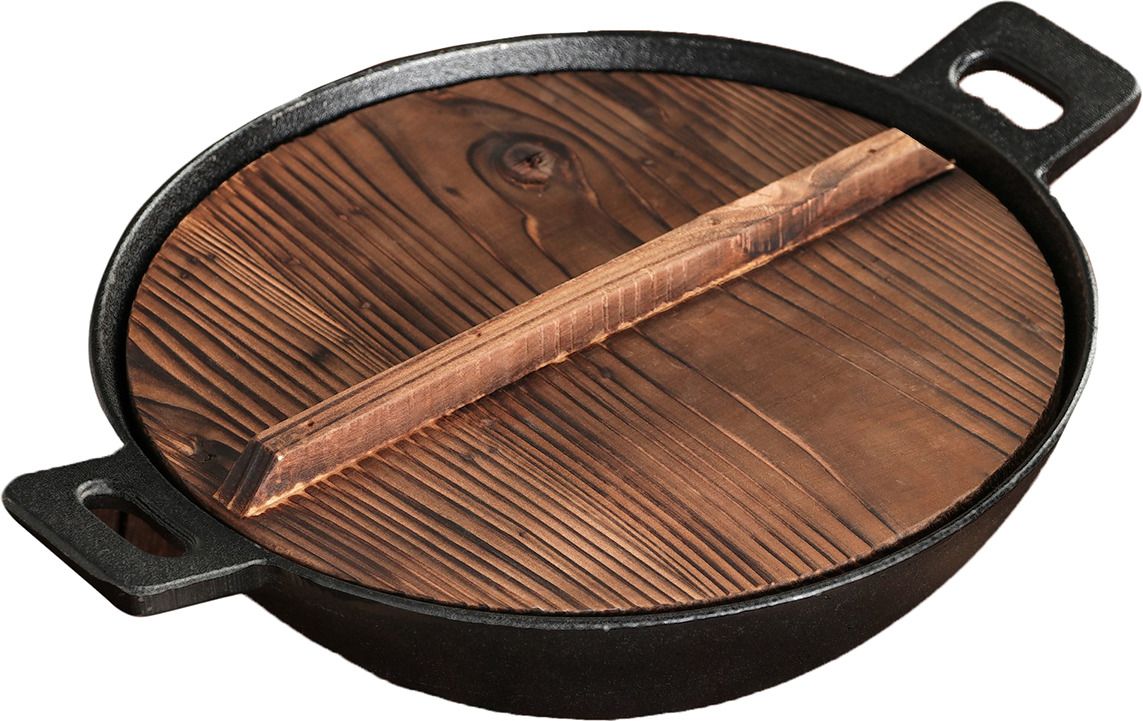
The round shape of the cauldron was chosen for a reason, it guarantees uniform heating not only at the bottom, but also on the sides. The products inside this unusual saucepan cook faster and stay hot for a long time, even after they have been removed from the fire. And a sufficient amount of steam turns the cooking process into slow simmering, and not aggressive frying. That is why any dish cooked in a cauldron is not only very tasty, but also healthy, since all the active elements in the products are preserved. Such gentle simmering allows the products to be maximally “saturated” with the taste and aroma of spices; when cooking in a regular saucepan, this effect cannot be achieved.
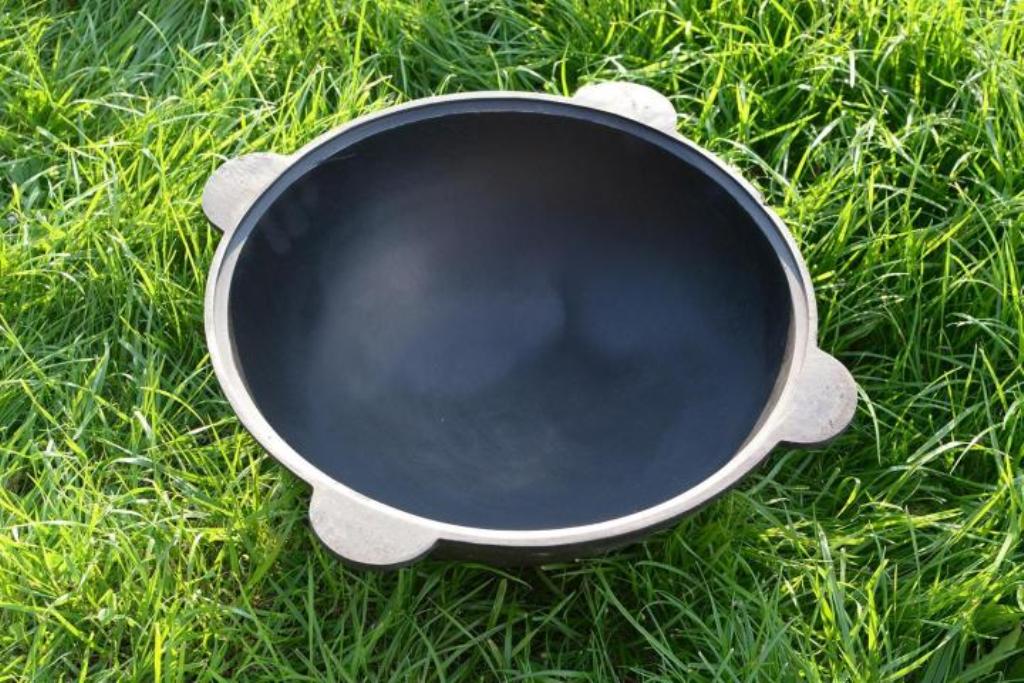
Another important detail to pay attention to is the cauldron handles. In some cases, the cauldron has a solid handle so that it can be suspended over a fire. The standard option is 2 handles. In this case, the cauldron looks little different from a regular saucepan. Especially if you are going to cook on a regular stove and have chosen a model with a flat bottom. But since classic cauldrons are designed for cooking over a fire, and you have the opportunity to use it in this way, it makes sense to take a closer look at models with four handles. They have additional crossbars to hang the container over an open fire.
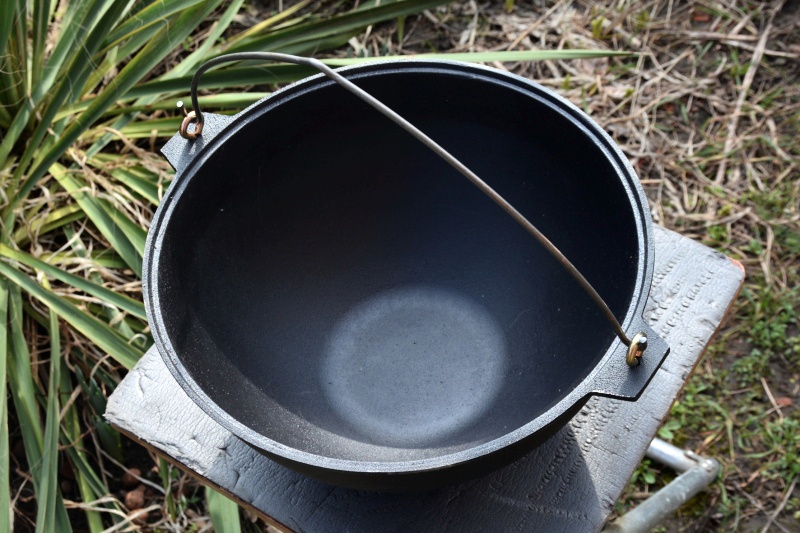
Selecting the material
The range of materials from which kitchen "inhabitants" are made is wide enough for you to choose the cauldron that suits you. In addition to the main material, pay attention to the coating for protection against oxidation or with a non-stick "purpose".
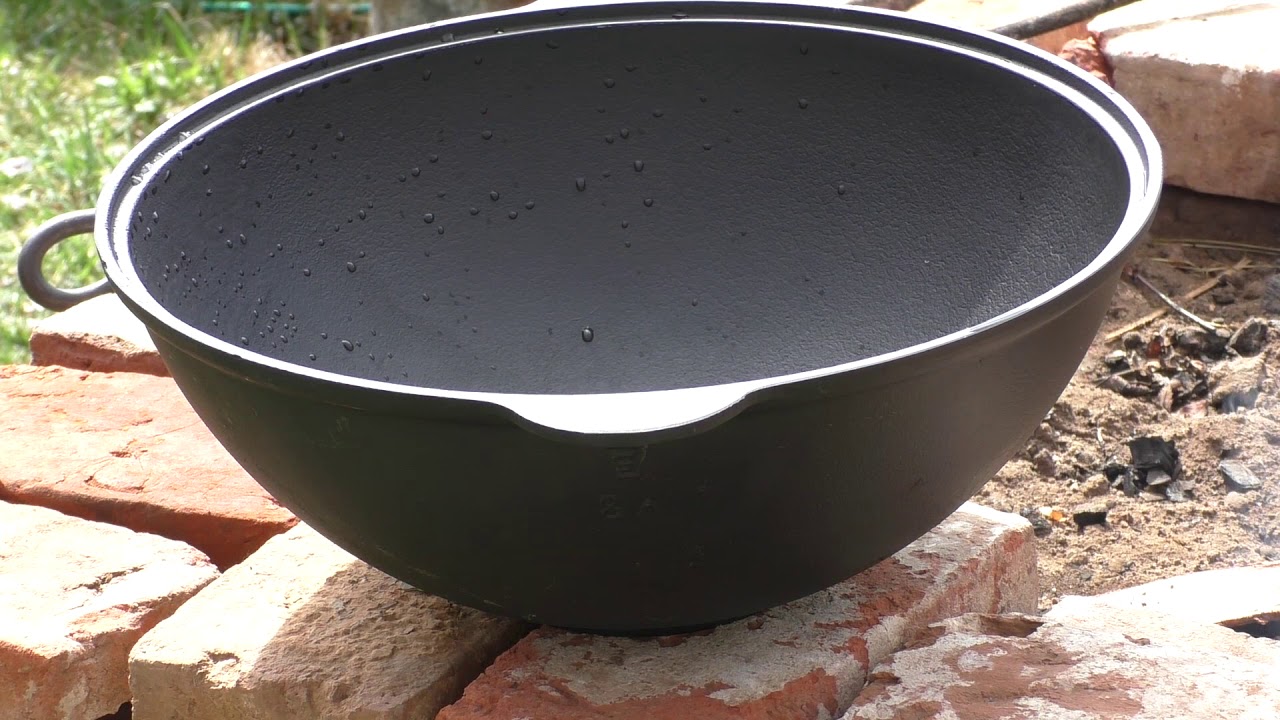
Ultimately, the cauldron is chosen based on your living conditions, personal preferences for external characteristics, and the dishes you are going to cook in it.
Cast iron
This is probably the most popular material for a cauldron. The alloy has the ability to retain heat for a long time, and the porous structure allows for the creation of a non-stick layer over time, due to the absorption of oil into the walls and bottom of the cauldron.
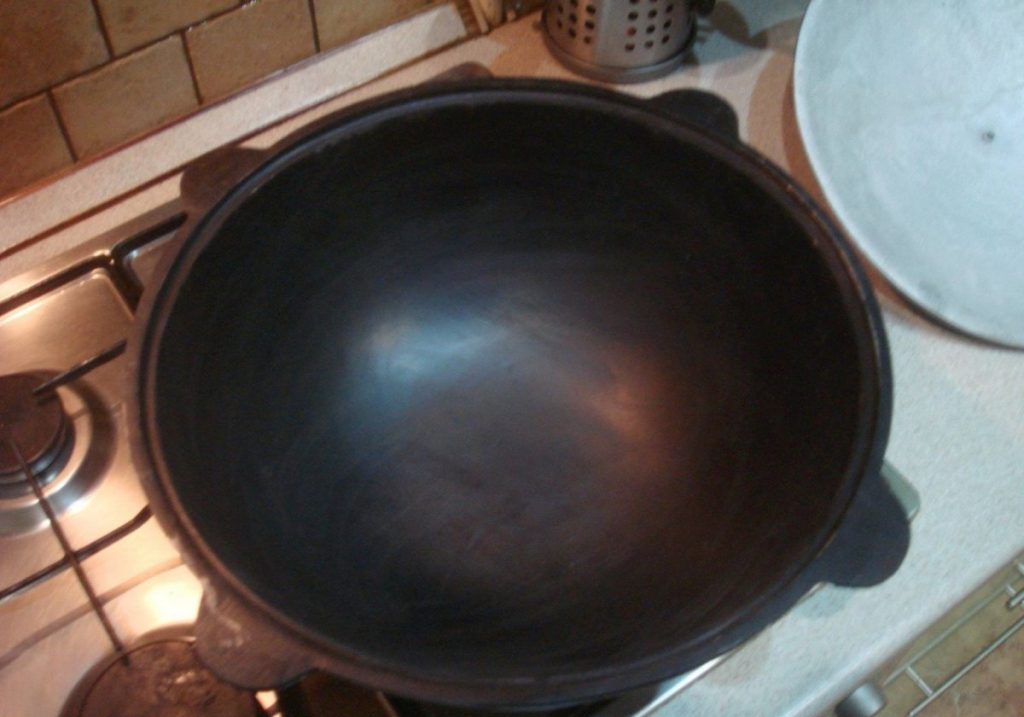
When choosing a cast iron model, pay attention, first of all, to its weight. The metal itself is quite heavy and kitchen utensils made from it also weigh quite a lot. In addition, there is a pattern: the thicker the walls of the cauldron, the greater the weight and the higher the quality. The thickness of the walls should not be less than 5 mm. If you plan to cook on a regular stove, choose a model with a flat bottom.
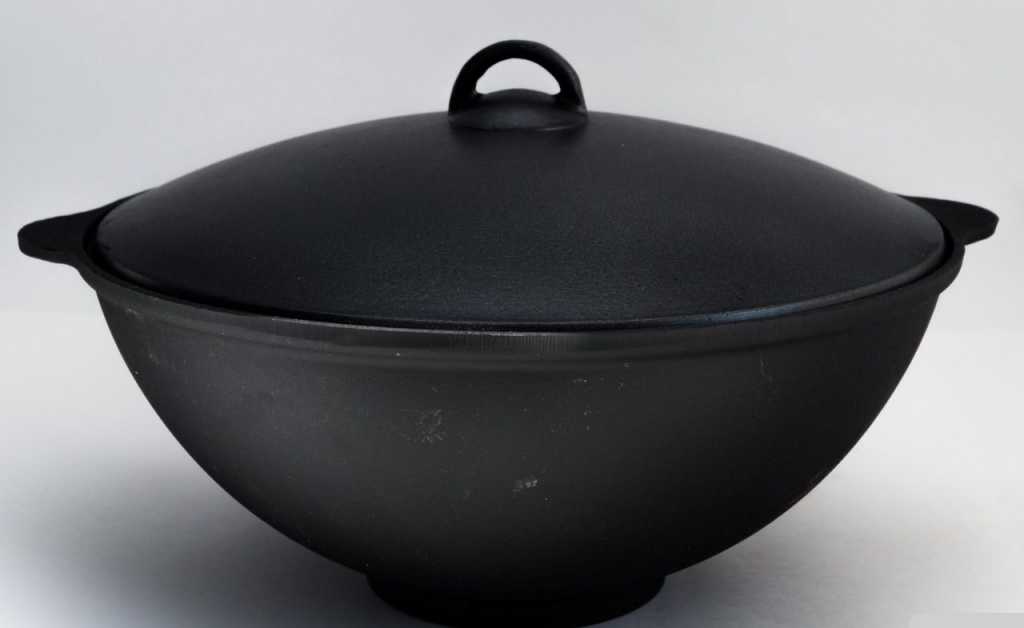
A good cast iron cauldron heats the contents evenly, and thanks to this, it is possible to cook unusual multi-layered dishes without worrying that some products will remain raw. In such cookware, dishes do not burn, they cook gradually and completely absorb the aromas and taste of various spices. According to many housewives, the most ordinary stewed potatoes in a cast iron cauldron taste like exquisite dishes from chefs of famous restaurants.
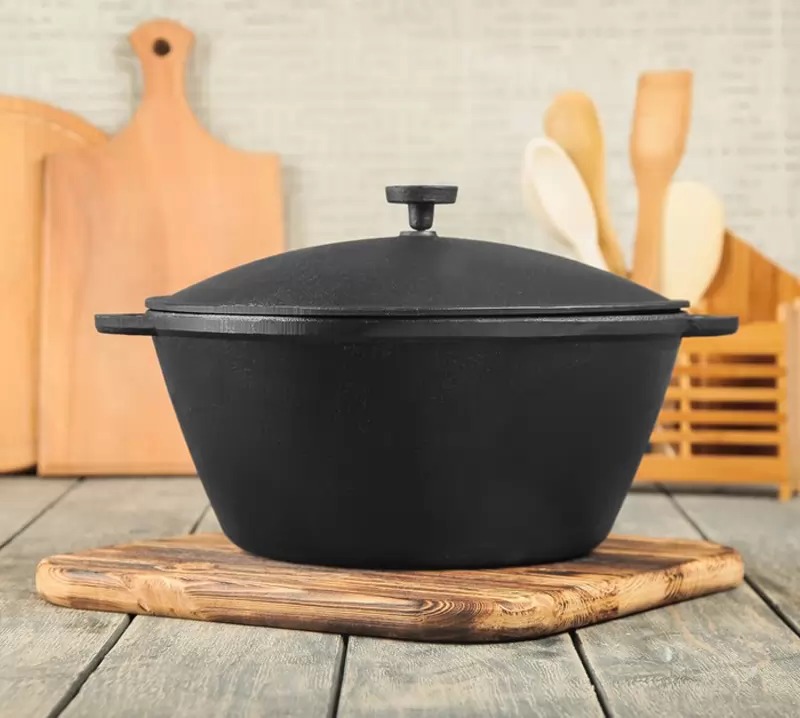
But cast iron also has its disadvantages:
- Fragile;
- Heavy;
- Susceptible to corrosion;
- Not the most aesthetically pleasing appearance.
However, these shortcomings can be reduced to zero if you follow simple rules:
- Handle the cauldron with care, store only when clean and dry;
- If you are so embarrassed by the rough appearance, keep it in a locker, do not put it on display;
- To at least somehow prevent rust, immediately after purchase, thoroughly heat the cast iron cauldron with oil and salt. This will create a non-stick coating on the surface and help extend its service life.
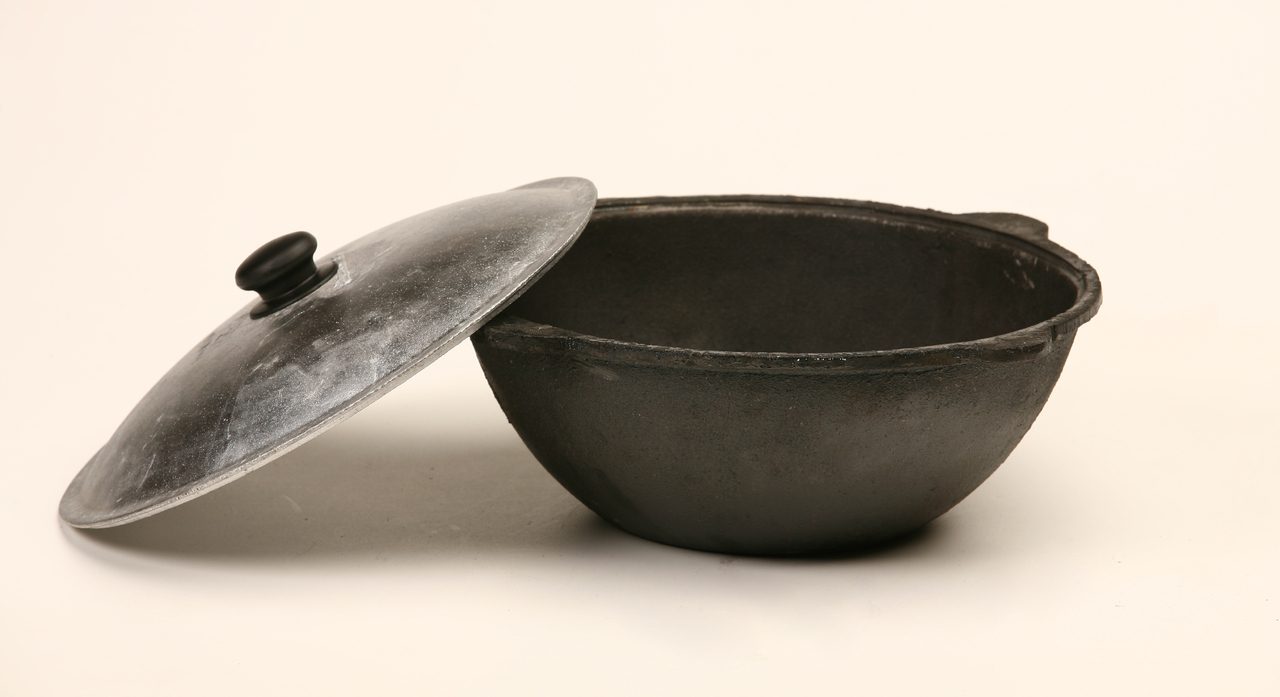
Aluminum
Aluminum cauldrons are, after all, a brainchild of our time, a desire to make life as easy as possible. It is no coincidence that aluminum models are especially appreciated by lovers of hiking and meals by the fire. Such a cauldron is very light and can be easily taken with you over any distance.
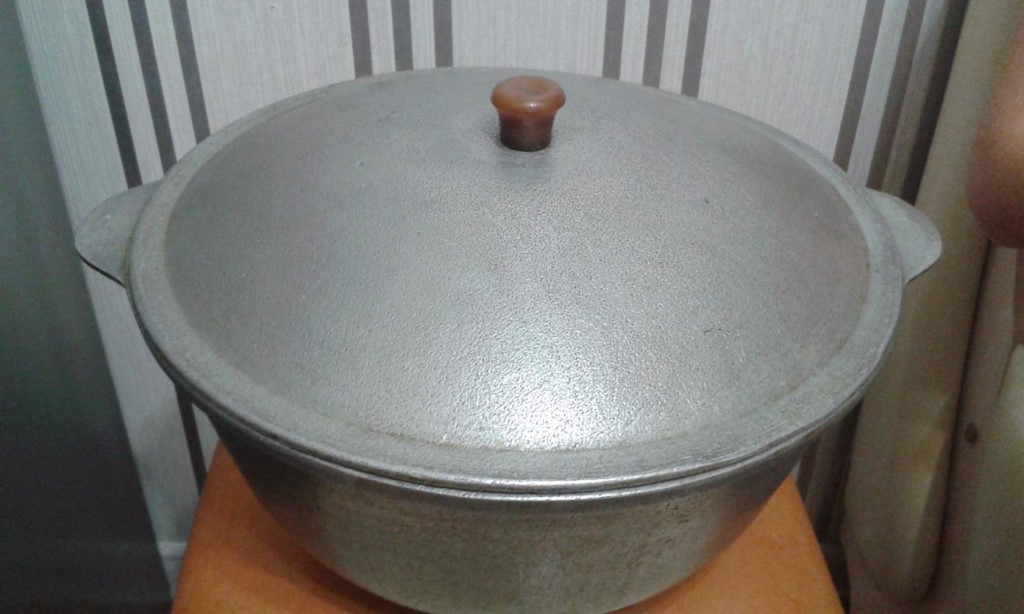
So, when answering the question: which cauldron is better, aluminum or cast iron, take into account the place of its use. If stationary at home - then cast iron, and if on a hike - aluminum.
When choosing aluminum options, choose those that contain manganese, iron or copper. After all, a purely aluminum model bends easily and is very fragile. Even during the cooking process, it can be hopelessly damaged.
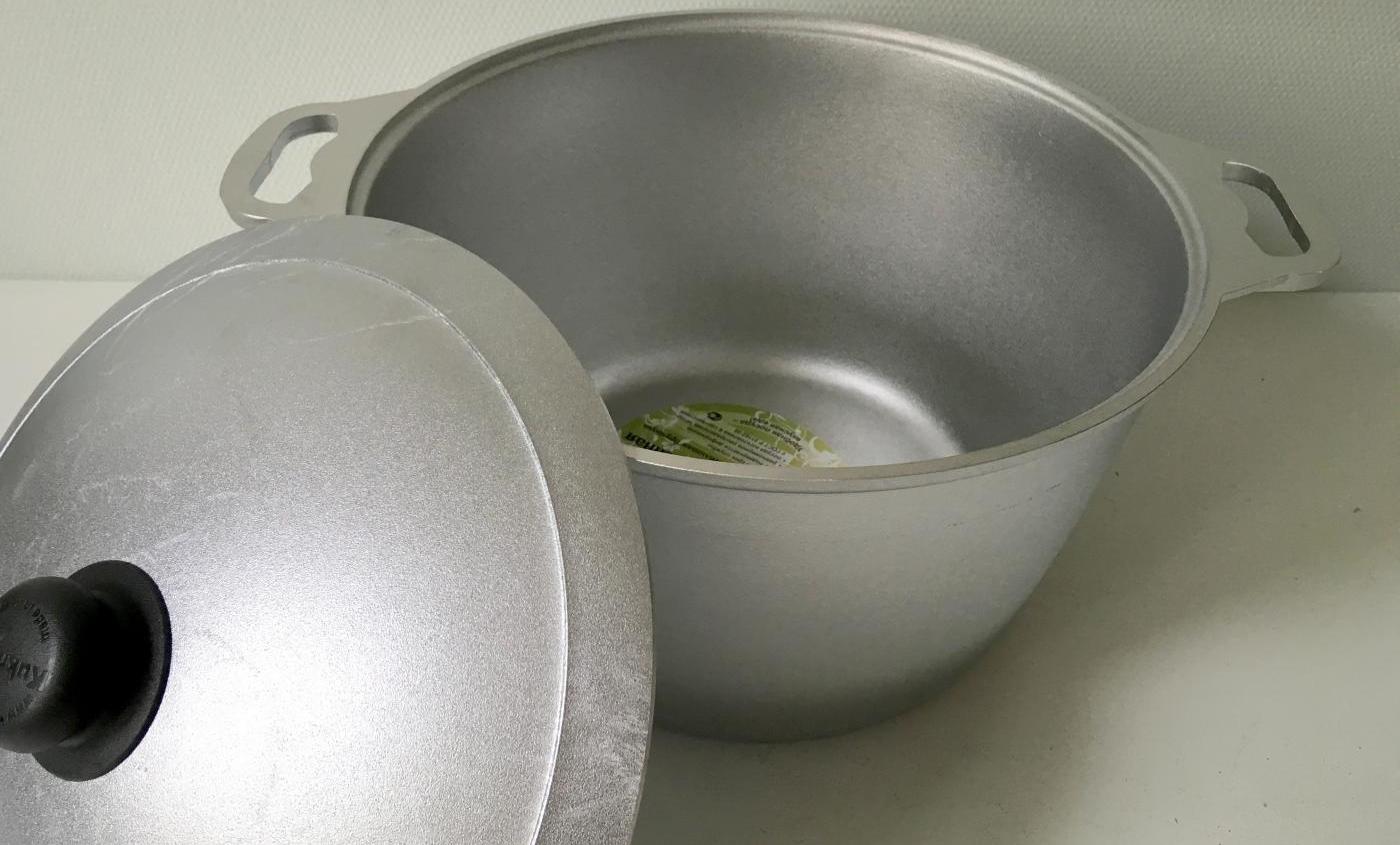
Aluminum cauldrons heat up very quickly, but they also cool down just as quickly, which is completely unacceptable for cooking real oriental cuisine. There is a chance that when cooking a large amount of pilaf (or another dish), some of the products will remain half-raw. And there is no need to talk about spices, even correctly selected seasonings for pilaf (cumin, barberry) simply will not have time to "give up" their tart taste and aroma.
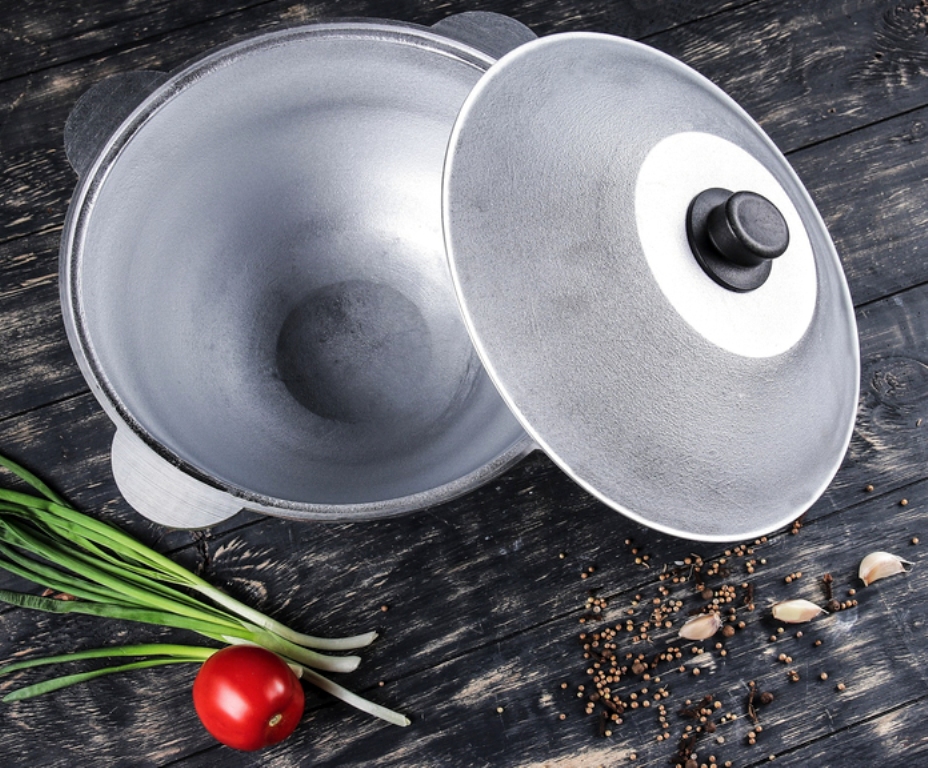
Another nuance: it is not recommended to store food in aluminum cookware; immediately after cooking, it should be put into another cookware. But, you must admit, it is extremely difficult to do this in field conditions. Therefore, it turns out that on the one hand, an aluminum cauldron is indispensable for hiking in nature, and on the other hand, it is a completely unsuitable option for this.
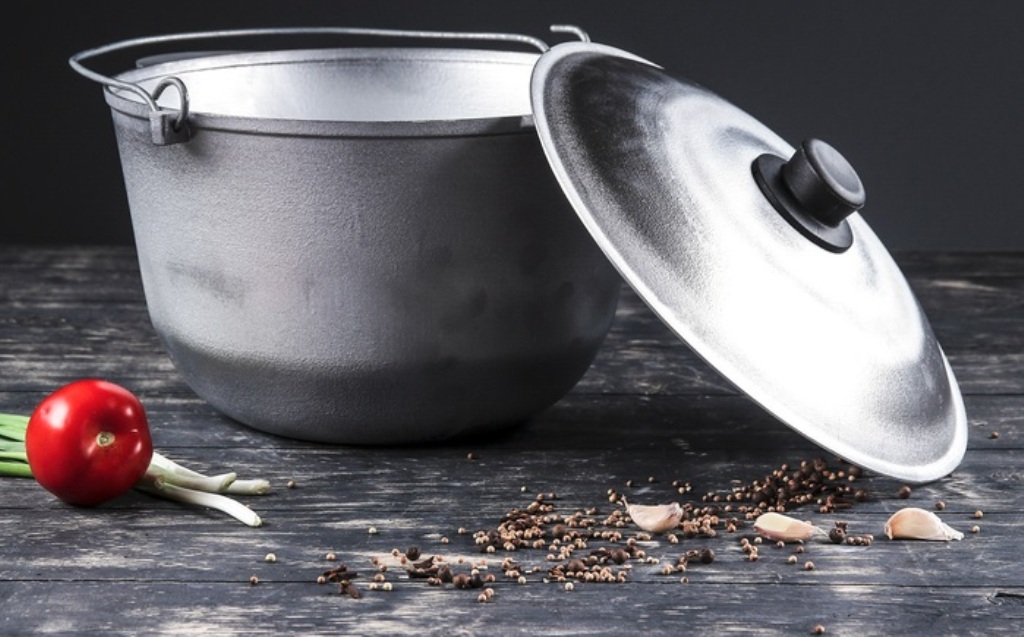
Experts advise: if you decide to buy a cauldron made of aluminum, choose thick-walled models (from one centimeter and more). In addition, keep in mind that in the absence of a special non-stick coating, food in aluminum containers easily burns.
Copper
Copper kitchenware is becoming less and less common. And cauldrons are no exception. The thing is that all copper compounds are toxic, and the material itself is subject to corrosion. Therefore, the operation and maintenance of a copper cauldron will require time and effort. After each cooking, the cauldron should be thoroughly washed and cleaned. Like aluminum, copper heats up quickly and cools down quickly.
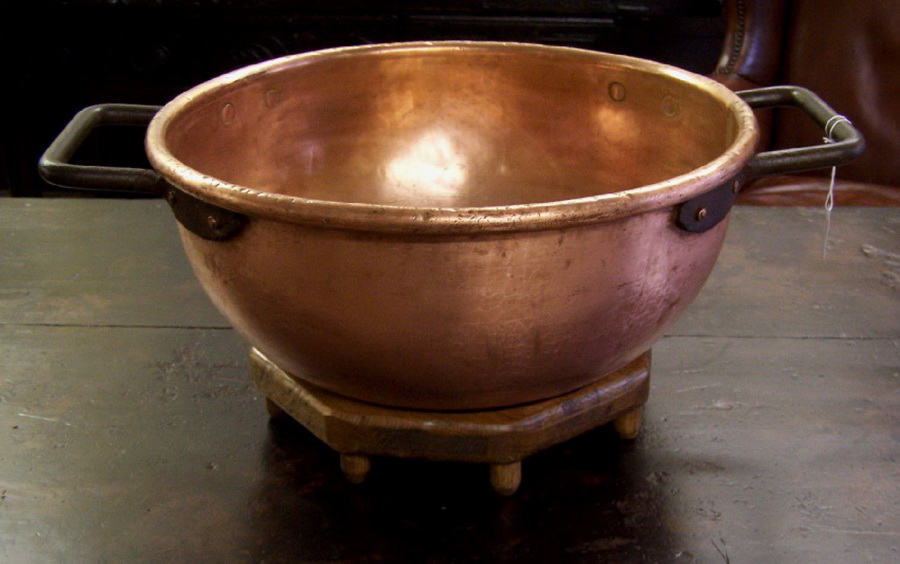
The walls of a copper cauldron are made thinner than the bottom, but the products are heated evenly to the very top. But it is not possible to simmer the food, as is necessary when cooking pilaf. The cooking process is very fast. And yet, despite the shortcomings, it is copper cauldrons that are often found in Uzbekistan and Azerbaijan.
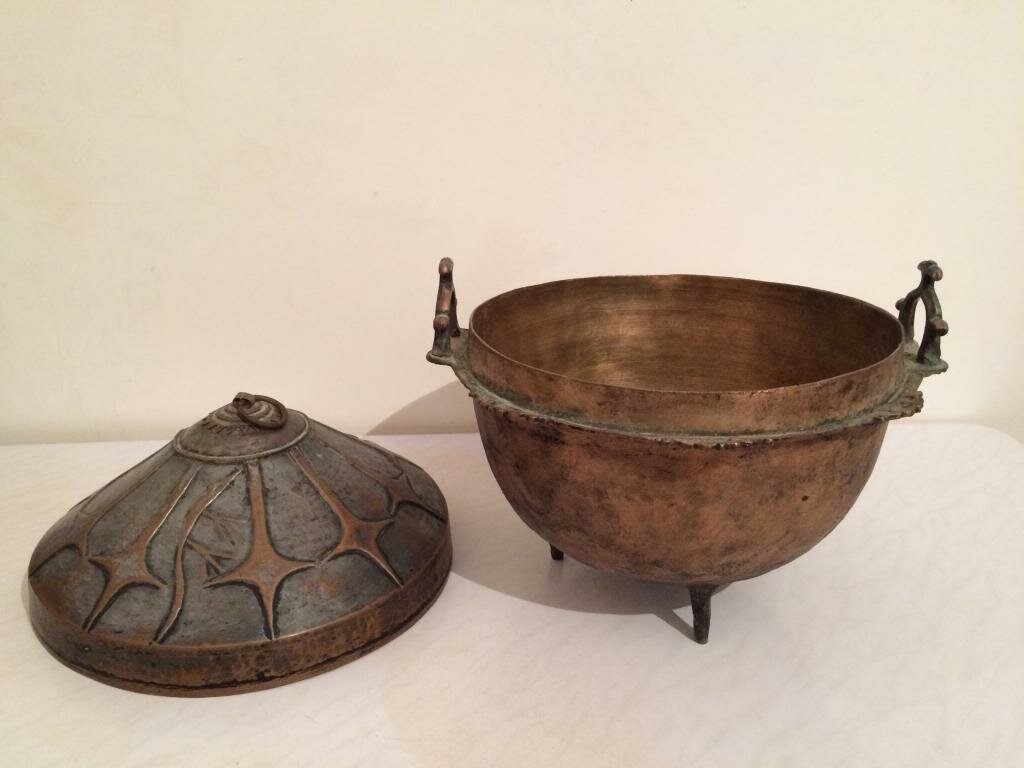
Another significant disadvantage of a copper cauldron is its cost. Copper cookware is a pleasure that is not available to everyone.
Coated steel
Steel is very close to cast iron in its characteristics. But if cast iron is not at all "afraid" of overheating, then steel cauldrons with enamel or Teflon coating will not withstand high temperatures, the top layer will peel off, crack. And such phenomena are not just an aesthetic problem, cooking in such cookware is dangerous to health.
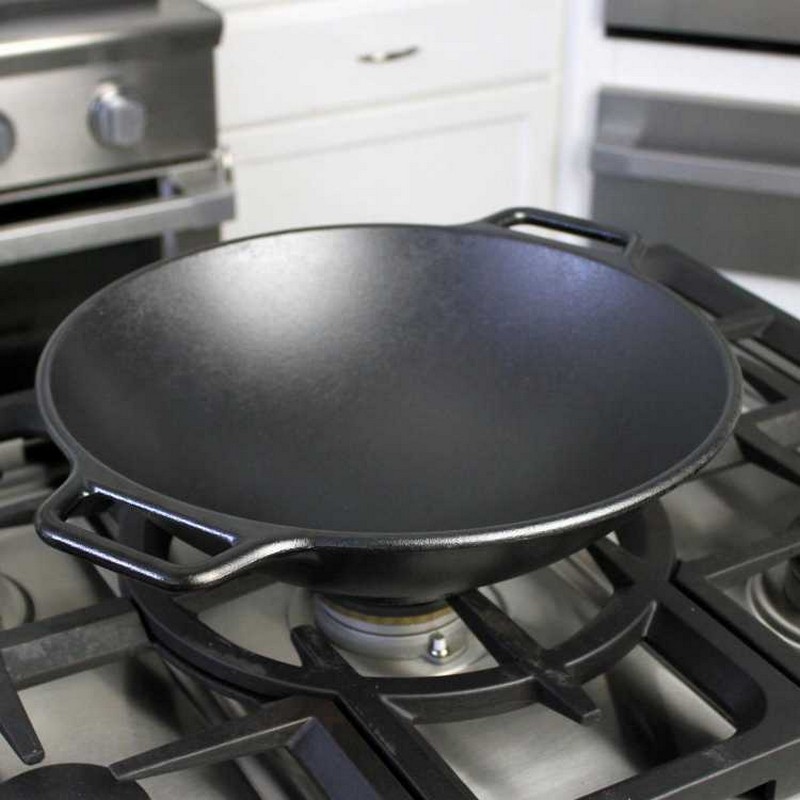
An important nuance: almost all dishes that are cooked in a cauldron require constant stirring. And Teflon, alas, often simply cannot withstand unnecessary sliding on its surface.
Another problem with cauldrons with a Teflon coating is that the food in them cools down quickly.
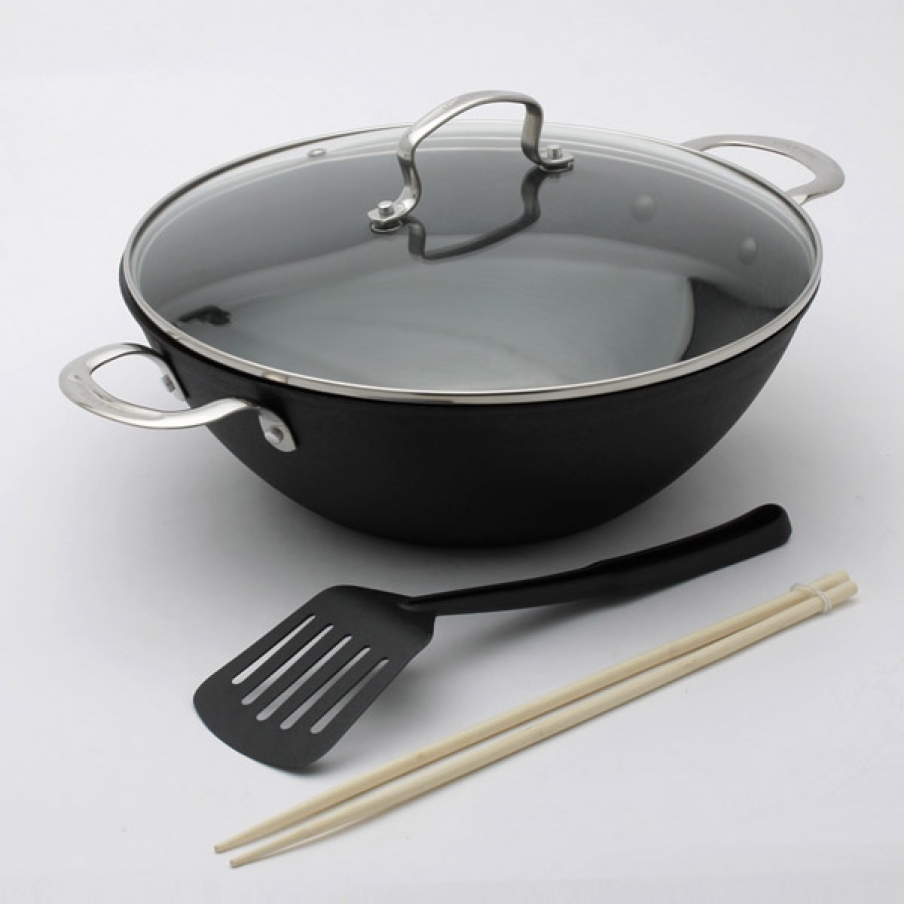
Conclusion: the only advantage of such models is their non-stick properties. But there are many disadvantages: heavy weight, short life of the non-stick layer, lack of steam due to the good thermal conductivity of the material.
What to look for when choosing a cauldron
The shape, volume of the cauldron and the thickness of the walls are the parameters that you should pay attention to after you have decided on the material.
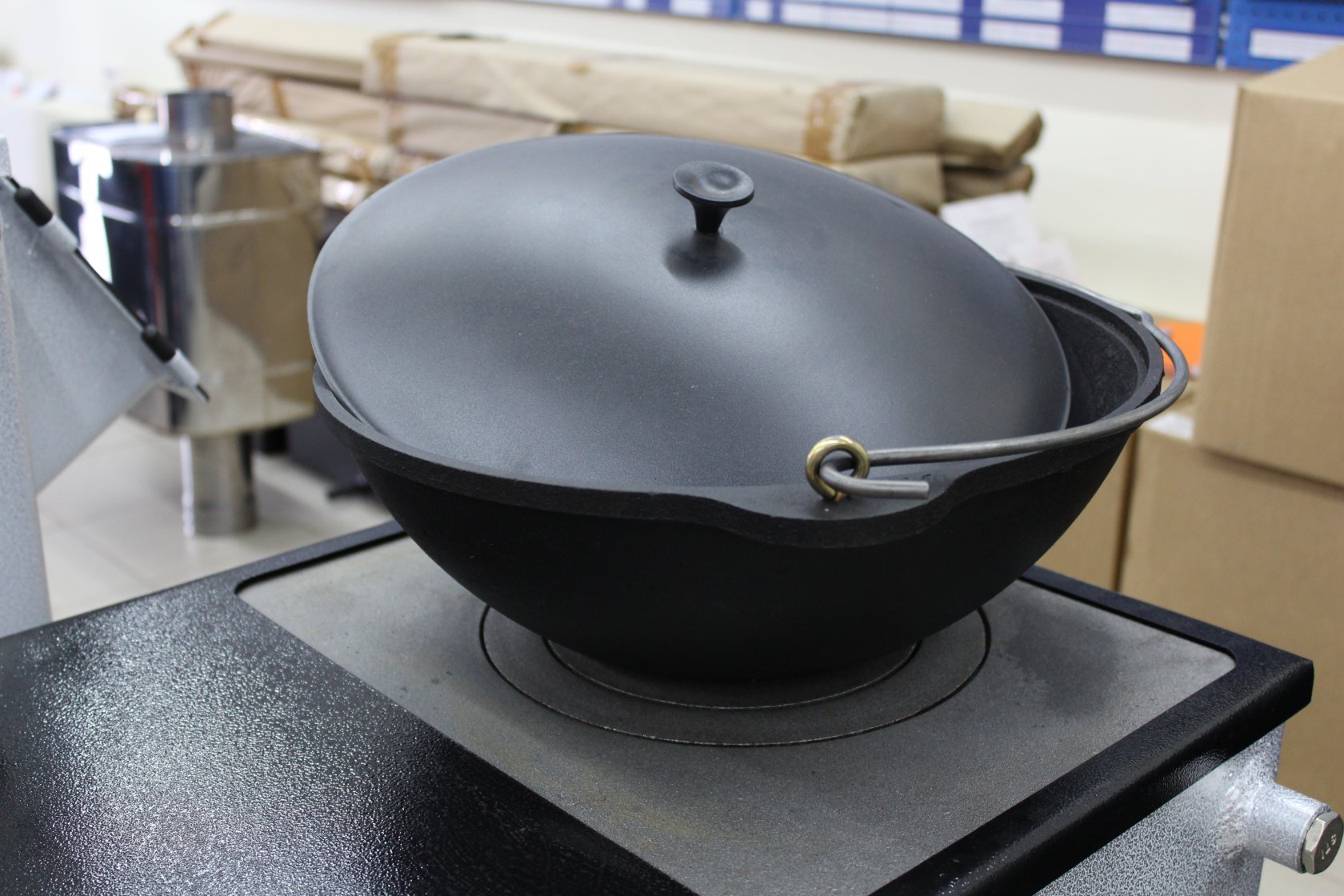
Form
Cauldrons are made in two types:
- Hemispherical shape. The classic appearance of an oriental "pot", the bottom should be rounded. It is this feature that allows the walls to be heated evenly, and, as a result, all the contents. Such a cauldron is used only for cooking on fire.
- With a flat bottom. This know-how allows you to bring the atmosphere of the East even to a typical apartment of a multi-storey building. Flat-bottomed models can be placed on the stove and cook your favorite exotic dishes in modern conditions.
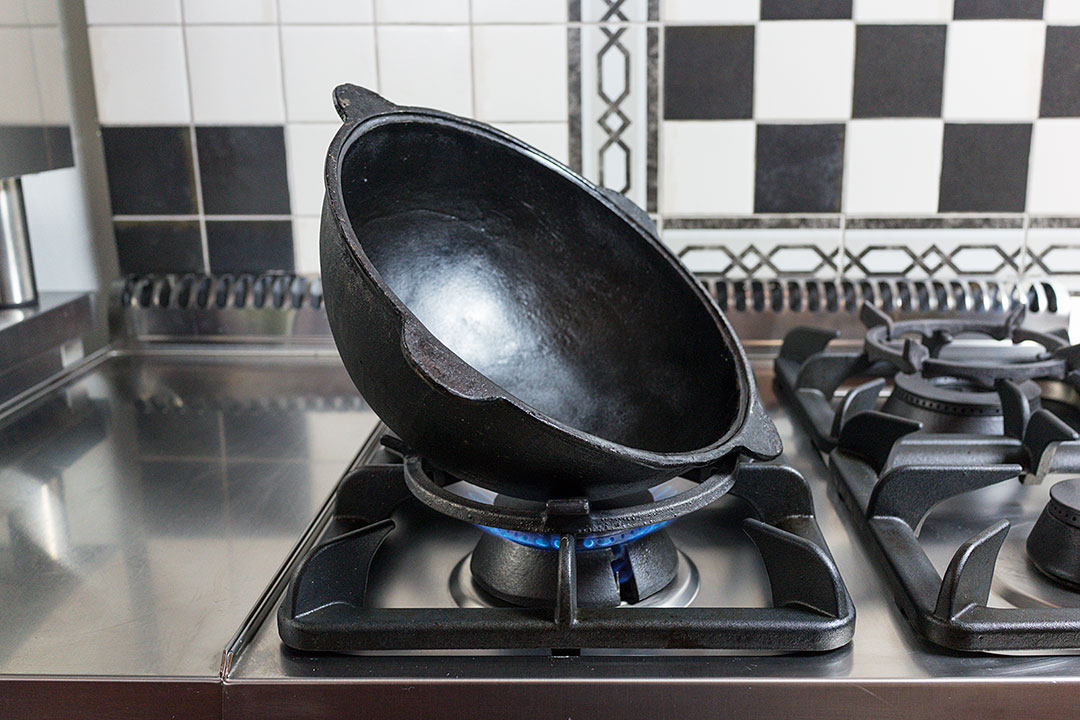
Volume
Standard cauldrons are available in a sufficient range of sizes. The proposed volume range is from two to twenty liters. Important: the maximum volume is indicated on the cauldron, not the useful one.
To determine what volume you personally need, pay attention to the following calculations:
- For 2-3 people, a volume of no more than 5 liters is required;
- For a company of 6 people, you need to purchase a cauldron with a capacity of 8 liters or more;
- If you are used to cooking for even more people, buy a cauldron with a capacity of 15-20 liters.
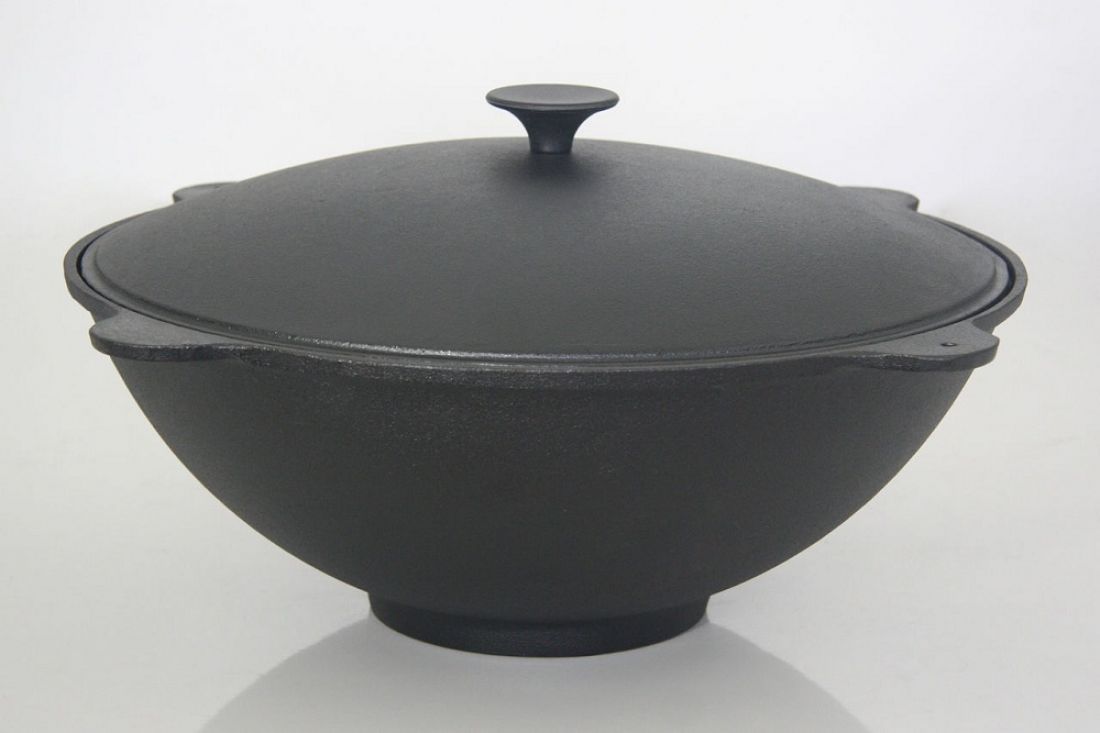
Wall thickness
Regardless of the material you choose for your cauldron, the thickness of the walls should not be less than 3-5 mm. Cauldrons with thick walls accumulate and retain heat longer.
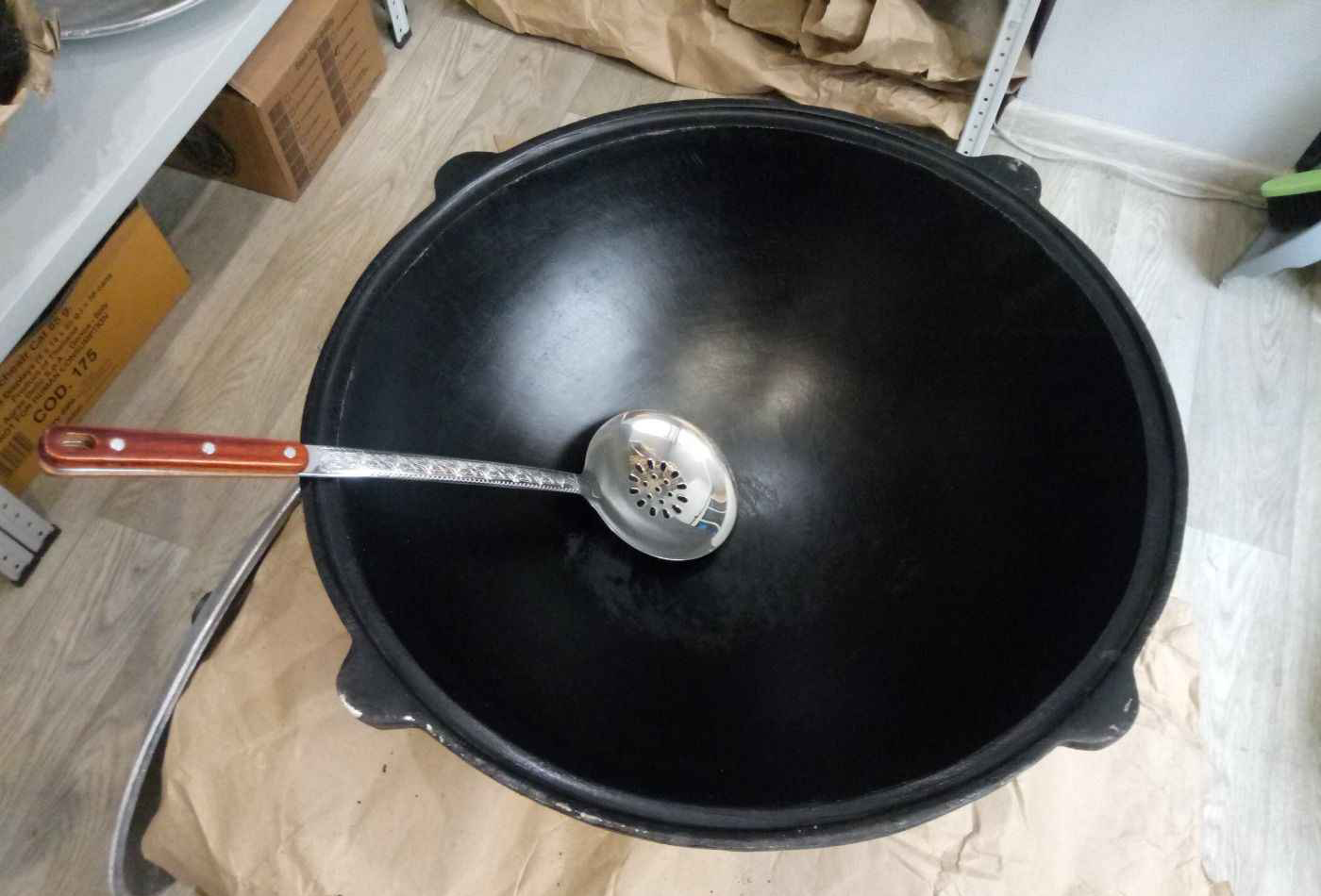
Also pay attention to the inner surface. It should be as flat and smooth as possible. If the cauldron has a coating, it should evenly cover the walls and bottom.
How to care for a cast iron cauldron
In order for the cauldron to serve longer and maintain its performance characteristics, it is important not only to know how to cook, but also to properly clean (or wash) kitchen utensils.
So, after preparation you need to:
- Remove any remaining food from the cauldron;
- Rinse it with warm water;
- Wipe dry with a cloth and rinse again;
- Pour water into the cauldron and bring it to a boil;
- Pour out the water, wipe the cauldron dry and grease with vegetable oil.
You shouldn't soak it overnight, especially with detergents. By the way, this applies not only to cast iron cookware.
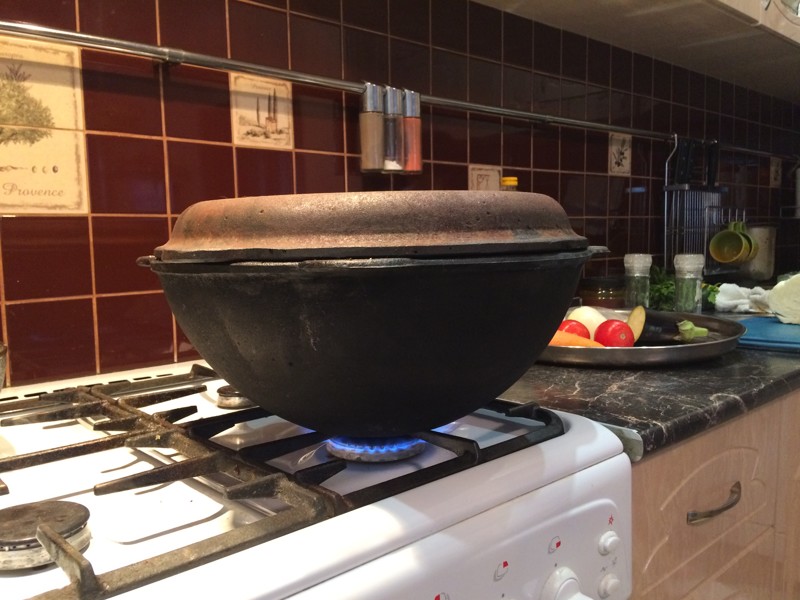
If the food was left in the cauldron and dried out there, you will have to wash the container with detergents, and then heat the cauldron, as was done immediately after purchase: first, pour in salt and keep the cauldron on the fire until the salt turns brown. Then grease the bottom and walls with vegetable oil. If you do not do this, rust will appear on the surface very soon and it will be impossible to cook in such a cauldron, since the food will have a characteristic metallic taste.
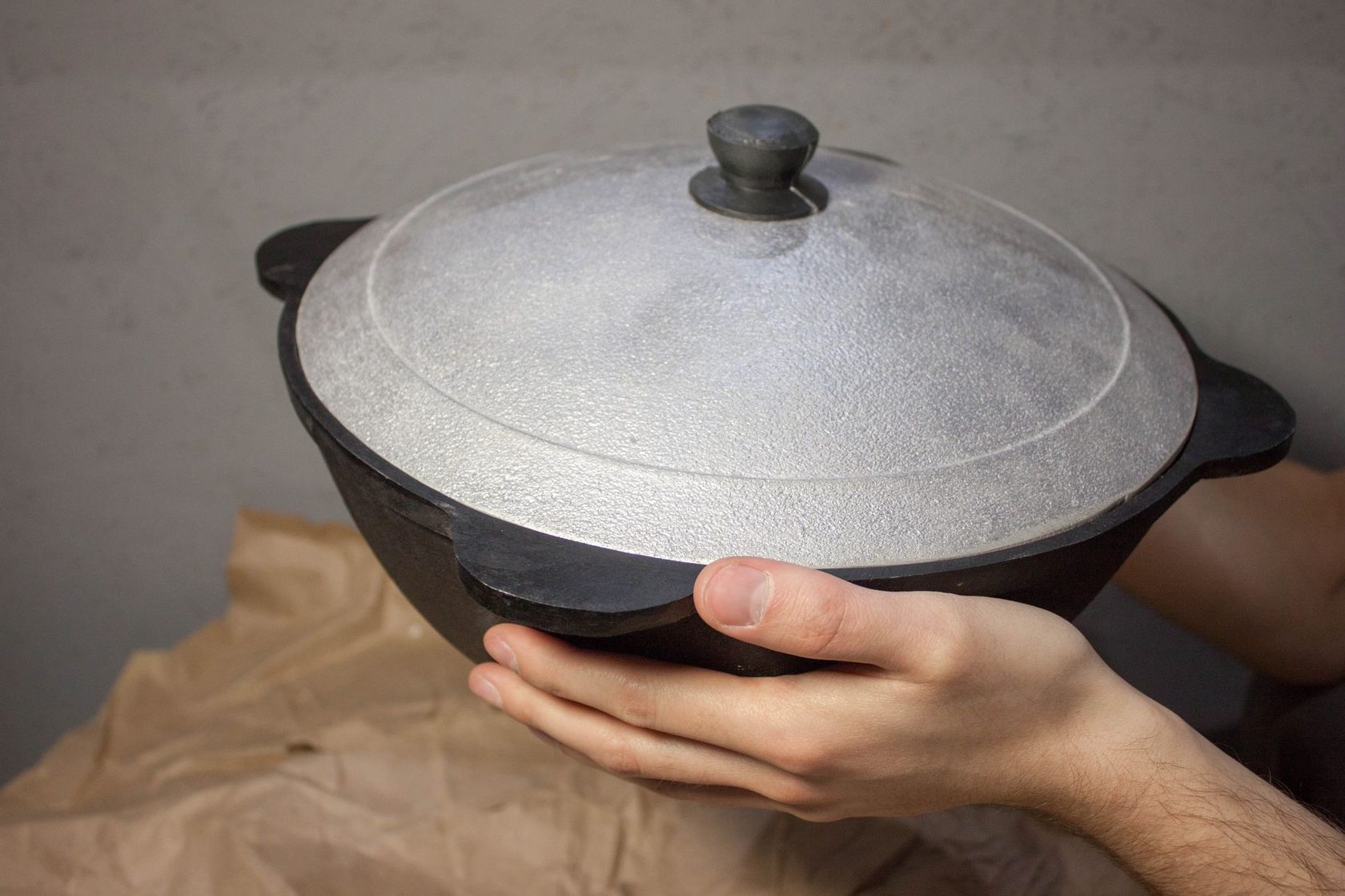
Manufacturers rating
- Kukmara. Probably the best manufacturer of cast iron cauldrons. Sufficient range of sizes, thick walls and aesthetic appearance.
- VARI – cast cookware with non-stick coating. The protective layer is applied by spraying. The brand's products are distinguished by modern design and reasonable prices.
- Mayer&Boch. A German company that produces cauldrons with glass lids, as well as a number of models with glass-ceramic coating.
- Forester is a manufacturer of unusual models with frying pan lids. The cauldrons can be used both on regular gas stoves and on an open fire.
- Staub is a French company that produces professional-grade cookware. High (at the same time, quite justified) price and premium quality.
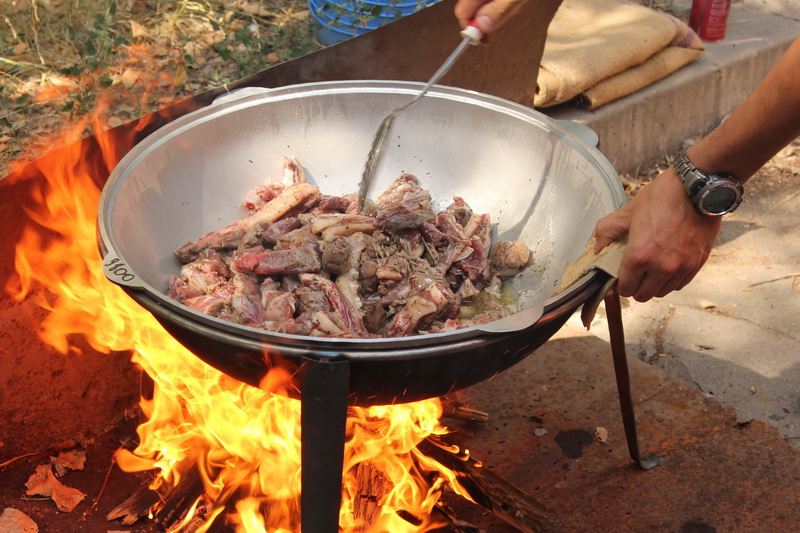
There is an opinion that to prepare a delicious dish it is not enough to have the necessary ingredients, you will also need the right kitchen utensils. This means that you can be sure that you can create the most delicious Uzbek pilaf, since purchasing the right cauldron is a matter of time. By the way, during the culinary action, do not forget to add a drop of your soul, and then you can be sure that your loved ones will appreciate your culinary masterpiece.

